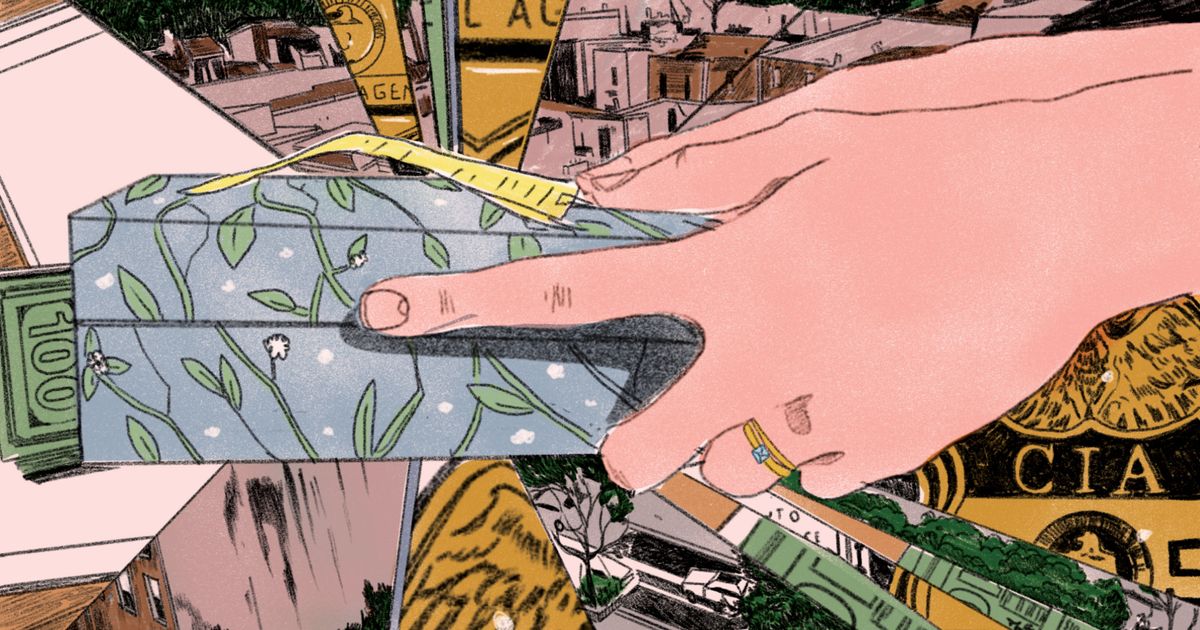
On a Tuesday evening this past October, I put $50,000 in cash in a shoe box, taped it shut as instructed, and carried it to the sidewalk in front of my apartment, my phone clasped to my ear. "Don't let anyone hurt me," I told the man on the line, feeling pathetic.
"You won't be hurt," he answered. "Just keep doing exactly as I say."
Three minutes later, a white Mercedes SUV pulled up to the curb. "The back window will open," said the man on the phone. "Do not look at the driver or talk to him. Put the box through the window, say 'thank you,' and go back inside."
The man on the phone knew my home address, my Social Security number, the names of my family members, and that my 2-year-old son was playing in our living room. He told me my home was being watched, my laptop had been hacked, and we were in imminent danger. "I can help you, but only if you cooperate," he said. His first orders: I could not tell anyone about our conversation, not even my spouse, or talk to the police or a lawyer.
Now I know this was all a scam — a cruel and violating one but painfully obvious in retrospect. Here's what I can't figure out: Why didn't I just hang up and call 911? Why didn't I text my husband, or my brother (a lawyer), or my best friend (also a lawyer), or my parents, or one of the many other people who would have helped me? Why did I hand over all that money — the contents of my savings account, strictly for emergencies — without a bigger fight?
When I've told people this story, most of them say the same thing: You don't seem like the type of person this would happen to. What they mean is that I'm not senile, or hysterical, or a rube. But these stereotypes are actually false. Younger adults — Gen Z, millennials, and Gen X — are 34 percent more likely to report losing money to fraud compared with those over 60, according to a recent report from the Federal Trade Commission. Another study found that well-educated people or those with good jobs were just as vulnerable to scams as everyone else.
Still, how could I have been such easy prey? Scam victims tend to be single, lonely, and economically insecure with low financial literacy. I am none of those things. I'm closer to the opposite. I'm a journalist who had a weekly column in the "Business" section of the New York Times. I've written a personal-finance column for this magazine for the past seven years. I interview money experts all the time and take their advice seriously. I'm married and talk to my friends, family, and colleagues every day.
And while this is harder to quantify — how do I even put it? — I'm not someone who loses her head. My mother-in-law has described me as even-keeled; my own mom has called me "maddeningly rational." I am listed as an emergency contact for several friends — and their kids. I vote, floss, cook, and exercise. In other words, I'm not a person who panics under pressure and falls for a conspiracy involving drug smuggling, money laundering, and CIA officers at my door. Until, suddenly, I was.
Lengthy but entertaining (and horrifying) read about how even a skeptical, normally logical person can get taken for a ride. They got through her initial defenses by having access to information she didn't volunteer (she later says that kind of stuff, such as names, digits of social security numbers, and family information, can be sold on the dark web).
"If someone is trying to get you to be compliant, they do it incrementally, in a series of small steps that take you farther and farther from what you know to be true," he said. "It's not about breaking the will. They were altering the sense of reality." And when you haven't done anything wrong, the risk of cooperating feels minimal, he added. An innocent person thinks everything will get sorted out. It also mattered that I was kept on the phone for so long. People start to break down cognitively after a few hours of interrogation. "At that point, they're not thinking straight. They feel the need to put an end to the situation at all costs," Kassin said.
Last edited:





